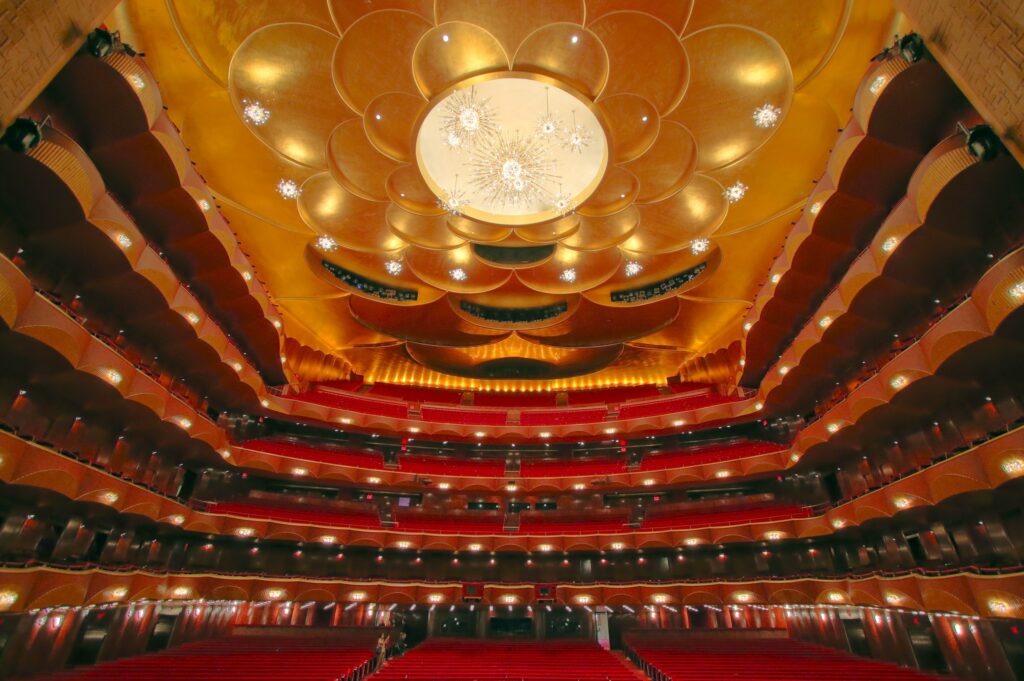
Metropolitan Opera House. Courtesy of Wikimedia Commons, Licensed under CCO 4.0.
In Ben Lerner’s Leaving the Atocha Station, the narrator, Adam, goes to the Prado every morning to stand in front of the Flemish painter Rogier van der Weyden’s The Descent from the Cross. On one particular morning, another man is standing in his place, looking at the painting, and this man suddenly bursts into tears. Adam is irritated and confused: “I had long worried that I was incapable of having a profound experience of art and I had trouble believing that anyone had, at least anyone I knew.” I too have worried about this; a painting has never moved me to tears. A poem has never changed my life. This is why the opera came to me as a surprise—both my love of it and the fact that, the first time I saw La Bohème, I cried through the whole fourth act. The pathos! I was deeply moved by the tragic story and by the register of the musical spectacle, but it was something more primal, too. Here was an art form that seemed not to shy from melodrama but move into its absolute depths, and then transcend and transform them.
I love opera not as an expert, or even as an informed connoisseur. I love it as an amateur, a near-total beginner. And despite its reputation, I think opera is surprisingly accessible, in part because of its absolute embrace and elevation of human feeling. I’m sure that as I spend more time in the Family Circle seats at the Met, I will learn more, and I might even become discerning. But for now I am going for pure pleasure.
This week, we’re publishing a series of pieces on opera. Colm Tóibín shares a letter to his mother, written from the moment when he fell in love with opera; Nancy Lemannconsiders the contenders for the greatest Don Giovanni of all time; Andrew Martin recounts a visit to Nixon in China; Adam Kirsch comes to the defense of Faust. Plus, two reviews of recent opera productions, a piece adapted from Patrick Mackie’s Mozart in Motion, a dispatch from our poetry editor, and a behind-the-scenes look at the making of Michael Bazzett’s poem in our Spring issue.
Sophie Haigney is the web editor at The Review.
from The Paris Review https://ift.tt/7Sql9Vo
Comments
Post a Comment